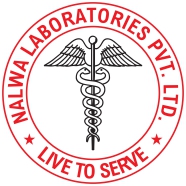Anomaly Scans

Anomaly scans, also known as fetal development ultrasounds, are a crucial part of prenatal care. These scans provide detailed images of your baby’s growth and development in the womb, allowing healthcare providers to monitor for any potential abnormalities or concerns.
During an anomaly scan, a trained ultrasound radiologist will use a special probe called a transducer to emit high-frequency sound waves into your abdomen. These sound waves bounce off your baby’s body and are converted into images that can be viewed on a monitor. This non-invasive procedure is safe for both you and your baby and does not involve any radiation.
The anomaly scan is typically performed between 18 and 22 weeks of pregnancy, although it may be done earlier or later in some cases. This timing allows healthcare providers to assess your baby’s anatomy in detail, as many of the major organs and structures will have developed by this stage.
During the scan, our radiologist will carefully examine various aspects of your baby’s anatomy, including the brain, spine, heart, lungs, kidneys, and limbs. They will also check the placenta, umbilical cord, and amniotic fluid levels. The goal is to ensure that your baby is developing normally and to detect any potential issues that may require further evaluation or intervention.
It’s important to keep in mind that while anomaly scans can detect many abnormalities, they cannot guarantee that your baby will be born without any health concerns. Some conditions may not be visible on ultrasound or may only become apparent later in pregnancy or after birth.
If the radiologist identifies any concerns during the anomaly scan, they will discuss them with you and your healthcare provider. Depending on the nature of the findings, additional testing or monitoring may be recommended. It’s essential to follow up on any recommendations promptly to ensure the best possible outcome for you and your baby.
Overall, anomaly scans are a valuable tool in prenatal care, providing important information about your baby’s development and helping to identify any potential issues early on. By attending regular prenatal appointments and undergoing recommended screenings and tests, you can help ensure a healthy pregnancy and delivery. If you have any questions or concerns about anomaly scans or any other aspect of your prenatal care, don’t hesitate to discuss them with your healthcare provider.

